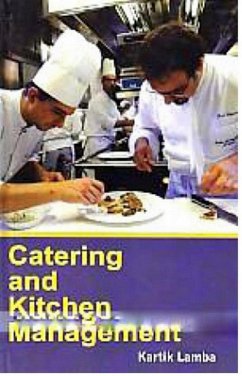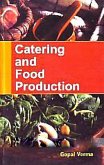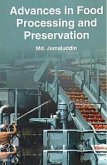'Kitchen management' includes the managing staff working in the kitchen, especially the head chef. The kitchen is the most important part of the business and the main reason customers patronize the restaurant. Managing the kitchen staff helps to control food quality. As most commercial kitchens are a closed environment, the staff may become bored or tired from the work. Without proper management, this often results in an inconsistent food product. Kitchen management involves most importantly, cost control and budgeting. Meeting KPI's are a must for a restaurant to survive. Head chefs must instill and teach money management to apprentices. This is as important as teaching the art and skills of cookery.' Administration' includes stock controlling, scheduling rotations, budgeting the labour costs, balancing cost and profit according to seasonality, surveying and hiring staff, and maintenance of the commercial kitchen equipment. This book places this subject in its most modern context as the foundation of this subject It is an authoritative resource of the subject that will benefit researchers, students, and teachers alike. CONTENTS: Food Service Cafeteria and Restaurant Management; Food Services Operation; Distribution Management of Foods; Handling and Technical Aspects of Foods; Nutrition and Dietary Supplement.
Dieser Download kann aus rechtlichen Gründen nur mit Rechnungsadresse in A, B, BG, CY, CZ, D, DK, EW, E, FIN, F, GR, HR, H, IRL, I, LT, L, LR, M, NL, PL, P, R, S, SLO, SK ausgeliefert werden.









